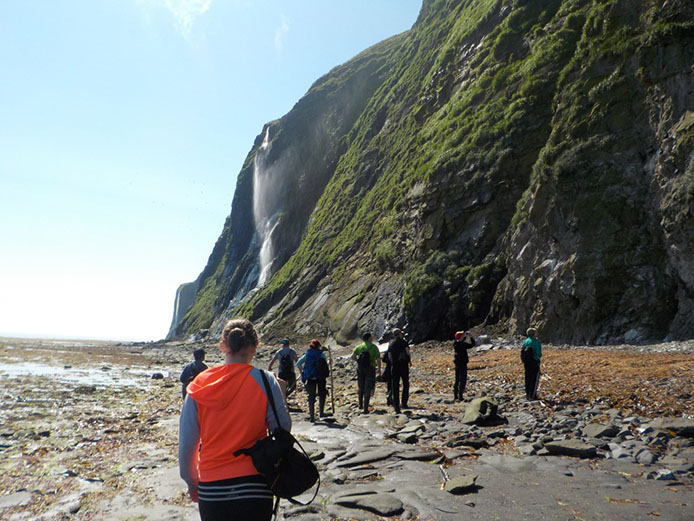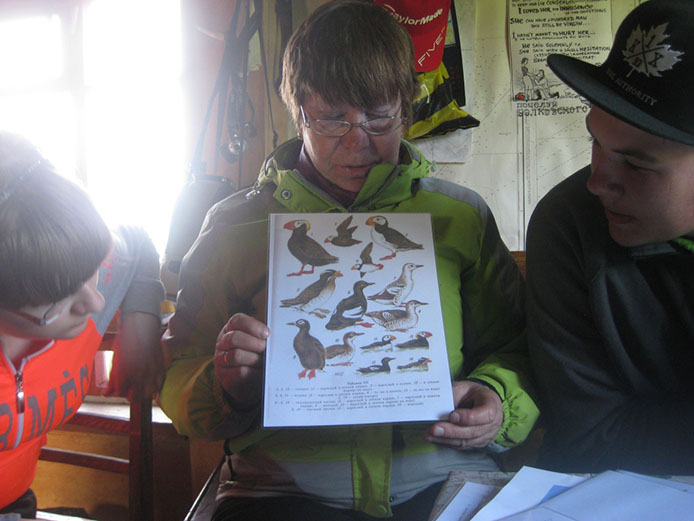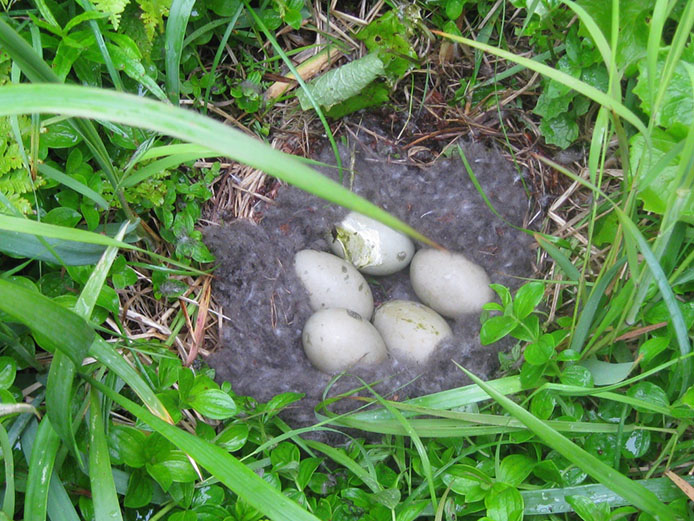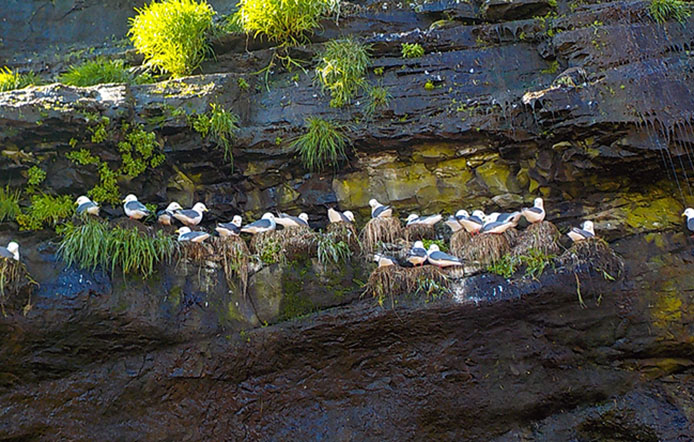The kids on the Commander Islands have just returned from their summer camp. We’re really excited to hear about the camp activities, it sounds like it was an action-packed adventure. And, we can’t wait to hear their camp song!
Many thanks to this report from camp leader Natalya Fomina.
The ethnic ecological camp “Aglakh” 2015
Our camp started at 7 am, on July 15. We used off-road vehicles to travel to Tolstoy Cape and spent three sunny and warm days there. Then we put on our backpacks and started to walk. The camp was special this year, because we were working closely with the Pribilof Islands. Communication with the students from the islands of St. Paul and St. George started this spring, and it was fun knowing that a similar camp was going on there this summer. Thanks to this collaboration for the cameras, GPS units, and binoculars for camp.
While we were at Tolstoy Cape, we visited a bird colony. Students listened to birds songs, practiced determining birds species, and observed the birds behavior. Later, in camp, we learnt about the ecology of seabirds from books. A specialist from Moscow State University taught us how to use the GPS units. Also, as usual on the Tolstoy Cape, we made a theatre production. This years presentations were based on two Aleutian fairy tales. They were very funny and interesting. Students learned how to imitate the birds songs. Our camp is ecological therefore investigation of birds and mammals is one of our priorities. The camp name also includes the word “ethno”, and one of this years goals was to learn more about culture and the Aleutian language.
From Tolstoy Cape we walked to to the river Polovina. In the Commander bay we made a short excursion to Bering’s expedition grave. At this point the weather started to change and it soon began raining. But even on rainy days we were busy with interesting activities. Botanists from Moscow State University explained their work to the students showed them how to prepare a herbarium. We also organized a game where students gained better knowledge about the nature of the Commander Islands, drew birds, and sang Aleutian songs.
The weather started to improve on July 21st, and we used the GPS units to head to Vodopadnaya valley, walking from east islands shore to the west shore and hoping for the better weather. But it was foggy and rainy in the Vodopadnaya valley too, therefore we decided to go to the Poludennaya bay, where we could stay in a cabin and dry out our clothes! Near the Steller’s Arch we did the traditional group picture. We were walking along the shore, but a strong swell forced us to higher ground and we ended up following an off-road vehicle track. Here, in a high grass we found the nest of an eider.
Scientists from Moscow State University were based in Polludennaya bay to study the cetaceans (whales and dolphins) of the Commander Islands. They were very friendly, and told us about their work and the biology of humpback whales.
Although the weather was not good all the time, we reached the main goals of our camp – to know each other much better, become friends, and overcome difficulties together. All students were very well behaved, and helped each other all the time. As in previous years, students wrote a song about the camp. During the camp meeting in September we will show pictures from the camp to the village and sing this song. So, the moving tent ethno-ecological camp “Aglakh” -2015 affiliated with the Aleutian administration is over. But time flies. And we will need to think and organize camp 2016 soon. It is very important to continue this work, especially because there is a chance for students to visit the camp on St. Paul Island in 2017.
Fomina N.S.




